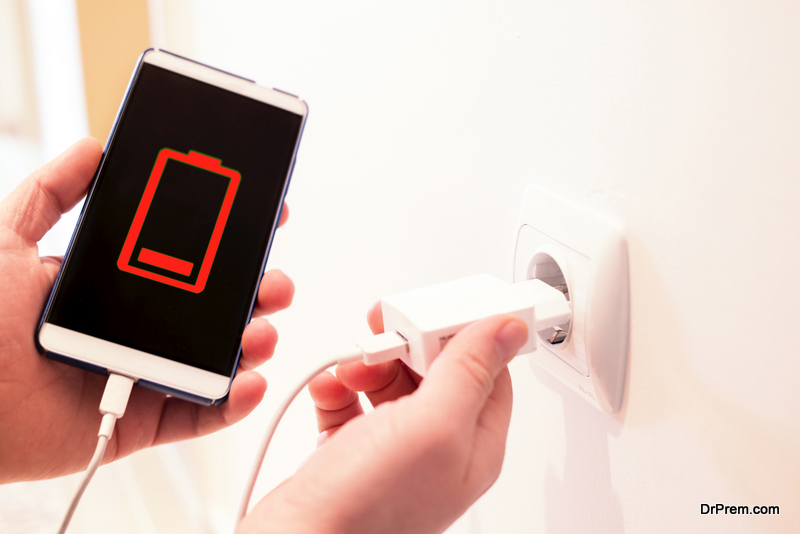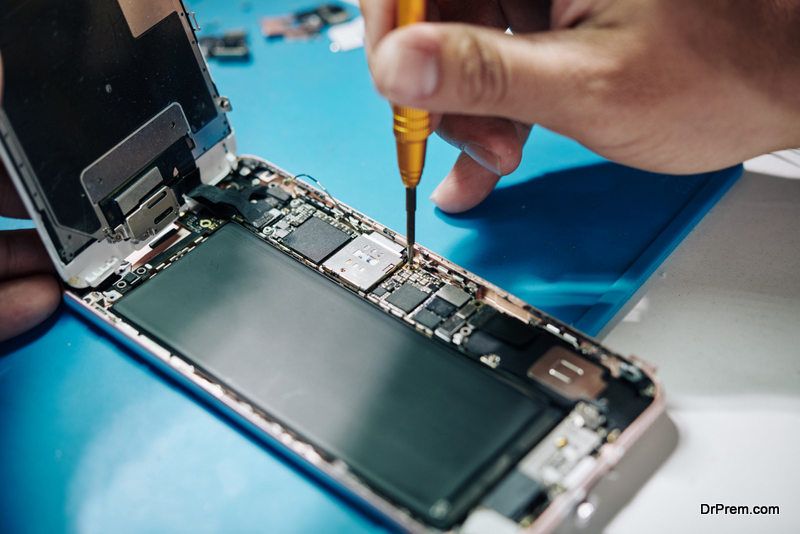Sustainability is a societal endeavor to come up with processes that do not harm the environment and protect the earth’s natural resources in the long run. The aim to be sustainable includes evaluating big or little practices and how they measure up environmentally. This concept is now spreading across many sectors and industries, from agriculture to technology to manufacturing. It has become a basis for deciding whether to undertake certain projects and how to go about them without negatively affecting the environment.
However, such decisions aren’t only made by companies and industries; individuals are also urged to make sustainable choices. One area of concern is our mobile phones and gadgets.
1. The Right to Repair
If your mobile phone is malfunctioning, will you replace or repair it? The Right To Repair group advocates for a sustainable cycle of owning and repairing mobile gadgets. According to them, consumers must have access to gadget parts and have the right to take their phone for repair before purchasing a new one. They argue that prioritizing repair over replacement means fewer gadgets in our landfills and slowing the cycle of overconsumption of mobile phones.
In light of those principles, your choice of whether to replace or repair your phone still depends on several factors. Here are some:
2. Power Consumption

Power consumption refers to the amount of electricity a phone will consume to run. Most, if not all, mobile phones utilize batteries, which require charging. The length of time your phone charges determines its sustainability.
If it takes several hours to charge its battery, which doesn’t last for long, it’s best to replace your device. Constant charging translates to high electricity consumption. Before deciding to replace, visit your local repair shop and inquire if they have your phone’s battery spare part. If the spare part is available, ask about its performance before settling for one.
New devices often come with efficient innovations, such as fast charging systems. With a fast-charging system, you only charge your phone for an hour or two maximum, which lasts for a long time, some extending to two days. In the long run, your device will consume less electricity, leading to sustainability.
3. Age Of The Phone
Mobile phones perform differently at different stages of their lifespan. In the beginning, most gadgets will perform their best, with this performance reducing gradually as it nears the end of its lifespan, mostly four-five years.
If the phone in question is an old model, it’s advisable to consider replacing it” After that add, “or to look for a dependable repair shop. For example, if you happen to live in Charlottesville, you can learn more about the repair shops like that.
Get a gadget that functions efficiently and whose lifespan is probably longer than your old one by replacing your phone.
4. Disposal Needs

Disposing of a gadget is not as simple as chucking it in the trash bin. A badly-disposed phone negatively impacts the environment because they contain toxic substances that end up in our landfills.
Replacing your phone has many disposal issues. Once you get a new gadget, where do you take the old one? In most cases, old gadgets are thrown away carelessly since they no longer serve a purpose, negatively impacting the environment.
You can still decide to replace your phone if there are amicable solutions to your old gadget. One of these solutions is a trade-in. With a trade-in, you’ll take your old phone back to its seller or manufacturer for a new one. The manufacturer will then take out your old phone’s parts, repair them and use them on refurbished phones. There’ll be no waste. These firms also know the proper disposal of the broken parts, so you won’t have to worry about destroying the environment.
5. Other Aspects
Other aspects to consider are manufacturing and transport.
Replacing your phone is a step-by-step procedure. The phone’s manufacturer needs to manufacture it. Manufacturing is a process that emits many emissions that negatively impact the environment. The raw materials need to be smelted, with others being molded. The noise leads to noise pollution, with the emissions causing air pollution.
After manufacturing, the producer has to transport the new gadgets to their vendors and other shops. They’ll utilize vehicles for transportation, which run on diesel or petrol. These fuel sources defeat the purpose of sustainability since the vehicles will expel them through their exhaust systems.
If you decide to replace your phone, you’ll increase the need for more manufacturing and transportation, negatively impacting the environment. Therefore, consider replacing your phone if you base your sustainability argument on the manufacturing process.
Conclusion
From the discussion above, you’ve seen how easy it is to decide whether to replace or repair your phone when considering sustainability. With this information, you can weigh your options and decide whether to repair or replace your phone. Whichever decision you make, ensure it positively impacts the environment.
Article Submitted By Community Writer




